Backyard lawns often have been the background music in the garden, the understated foil to flower borders, trees and shrubs. Today, however, people are rethinking the notion of the sprawling, wall-to-wall, nondescript lawn. Not only can large lawns be wasteful environmentally in terms of water and the other resources needed to maintain them, but they also can be wasteful visually.
The key to today’s smart lawn is to design it as a specific visual element that interacts with, and counterbalances, other elements in the yard, such as hardscaping and planting beds. Used in this way, the lawn gains importance, becoming sculptural as well as practical.
As the following examples demonstrate, working with geometry and something of an artist’s eye can help focus a yard, marking areas for play or entertaining, or for just the pleasurable contemplation of a cool, peaceful patch of green. A sculptural lawn can be created from any number of turfgrasses, including types native to a particular region that may require less care. If done thoughtfully, and even with a bit of whimsy, limiting the backyard lawn increases its impact rather than diminishes its value.
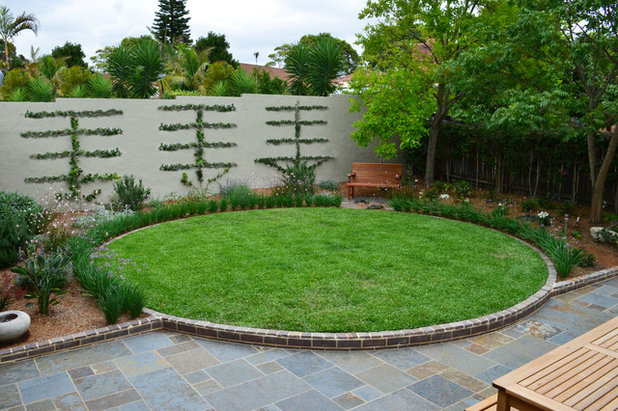
Outhouse Design
This round lawn, set into a bed as another planting element, is eye catching and seemingly meant to be contemplated from a bench set outside its perimeter. The shape of a lawn like this can been kept precise with an edger and maintained with a regular mower, depending on the type of grass used.
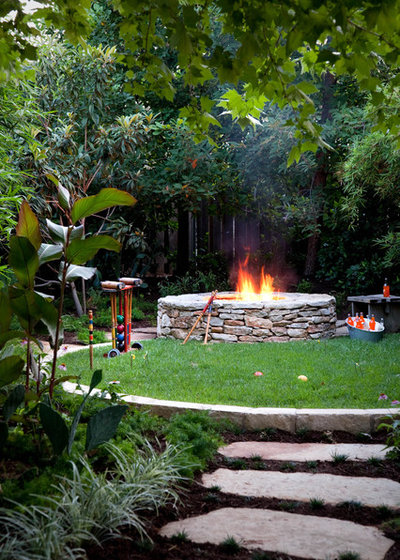
B. Jane Gardens
The round lawn can also become a stage for play, as here, and a place to gather around a round fire pit that functions as a circle within a circle.
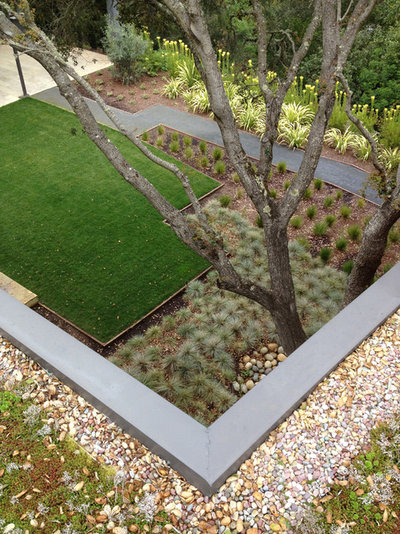
Costello Kennedy Landscape Architecture
This geometric lawn is part of a green tapestry that includes geometrically planted beds.
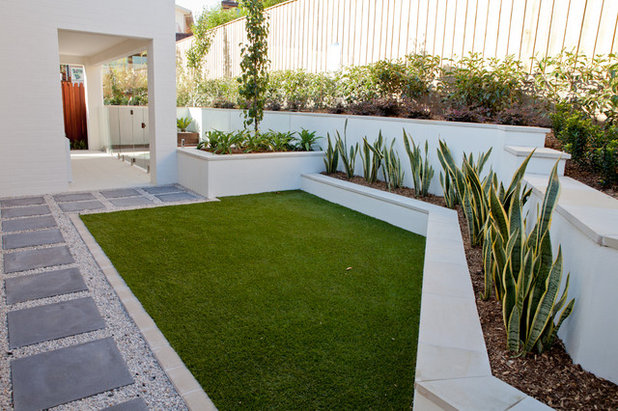
In cases where the look of lawn is desired but not the upkeep, artificial turf can be a good substitute.
The angled geometry of this lawn tracks the angles of the patio and elevated planter, bringing to the cool white walls and walkway a bright spot of green that is echoed by the plants.
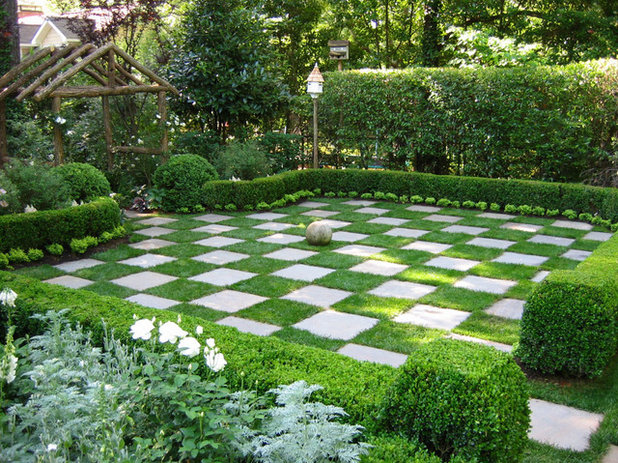
Planters
Not everyone has the space for a dramatic checkerboard lawn, but its impact is substantial — it’s a showstopper. In this garden the alternating lawn and paving stones are set at the same height, making mowing simple.
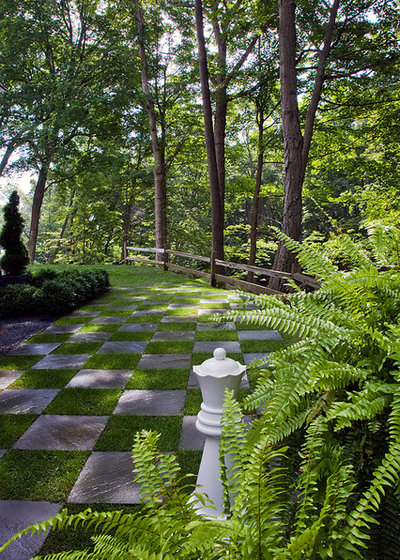
Heynssens + Grassman, Inc.
A chessboard lawn, here furnished with a giant chess piece, can be used to transition one area of the garden to another.
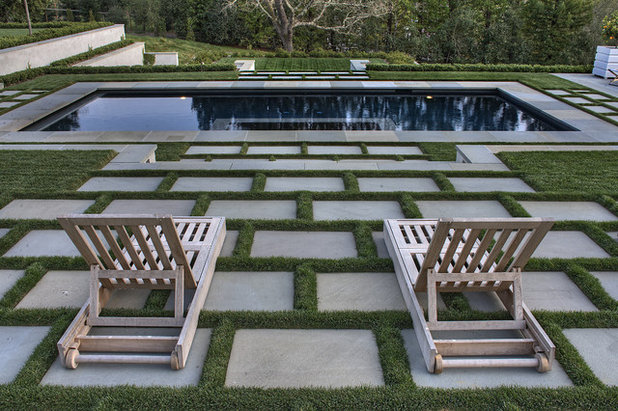
Terra Ferma Landscapes
Playing with lawn geometry can lead to striking effects. Here solid expanses of lawn are broken up by areas of pavers “grouted” with lawn.
Patio Pavers Go Green in Between
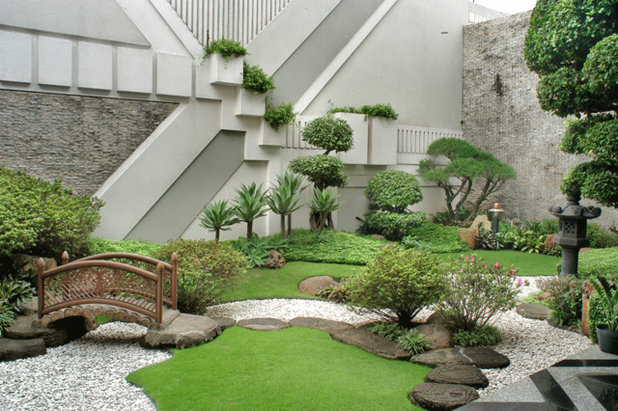
angelien garden & landscape
The visual impact of the lawn grows as it becomes an equal design element with hardscaping, trees, shrubs and rocks.
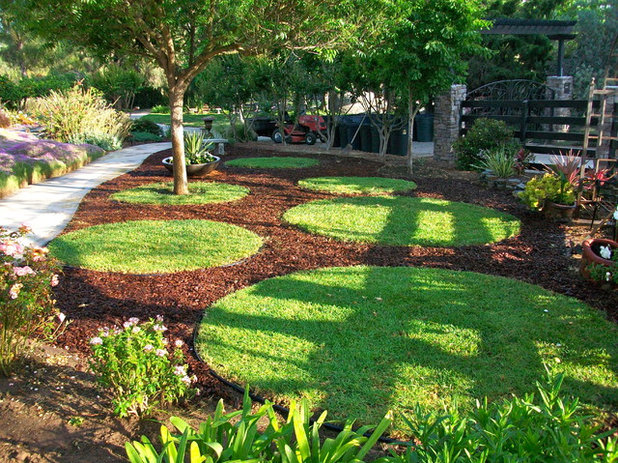
These playful lawn circles, set against wood-chip mulch, are artsy eye candy that bring life to what otherwise might have been a humdrum expanse of lawn.
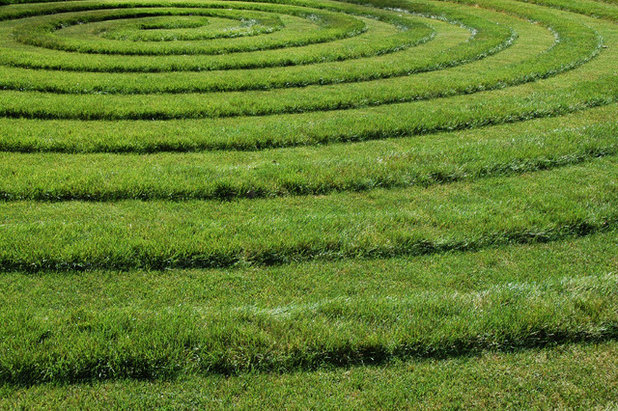
Kettelkamp & Kettelkamp
Lawn can be living sculpture. A concentric-circles effect like this is achieved by setting the mower at different cutting heights.
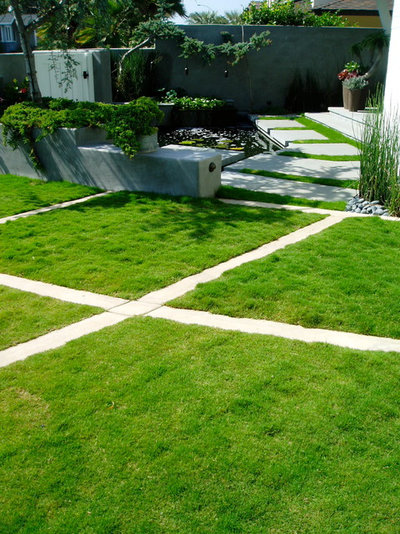
The Design Build Company
Simply dividing large squares of lawn with pavers gives a large lawn area more visual power.
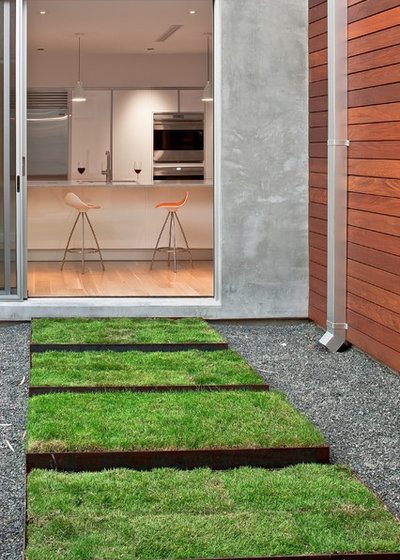
Exterior Worlds Landscaping & Design
Even the smallest lawn can be powerful. Here the homeowner has created raised grass “pavers” where you might expect stone or concrete.
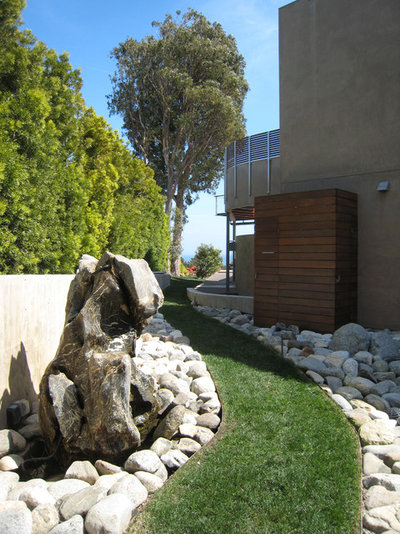
GEL: Griffin Enright Landscape
The lawn’s visually cooling effect can be seen in this yard, where a deep green river of grass courses through a stony bed.
More:5 Great Grasses for a New Lawn
Strike a Balance: Stuff vs. Space in the Garden
Tell us: What do you think of these lawn designs? Share pictures of your own small lawn in the Comments section below.





